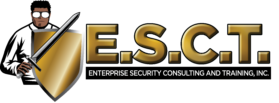In the 1990s, while working security at a Luther Vandross concert, I learned a valuable lesson about professionalism in personal protection that has stuck with me throughout my career. This experience not only shaped my approach to the job but also provided a crucial insight into what it means to be truly professional when entrusted with the safety and privacy of high-profile individuals.
It was an exciting night—Luther Vandross was performing, and the atmosphere backstage was electric. Amidst the hustle and bustle, I saw an opportunity to capture a moment with the legendary singer. Camera in hand, I was about to snap a picture when one of Luther’s bodyguards approached me. He asked what I was doing, and without hesitation, I told him I wanted a picture with Luther.
His response was immediate and firm. He explained that Luther Vandross didn’t appreciate having his picture taken by staff and that my actions were unprofessional. He emphasized that as a security professional, my job was to ensure the artist’s safety and privacy, not to get starstruck or act like a fan. This interaction was a turning point for me. It taught me the importance of maintaining a strict professional demeanor, regardless of the situation.
One of the core responsibilities in VIP protection is respecting the personal boundaries and privacy of the individual you are protecting. Celebrities and high-profile figures often value their privacy immensely, and it’s our job to honor that. Trying to get a personal memento, such as a picture, breaches that trust and undermines your role.
It’s easy to get distracted by the glamour and excitement of being around famous people. However, losing focus can compromise the safety and security of the VIP. Staying vigilant and attentive to your duties is paramount. Your primary goal is to ensure their safety and well-being, not to indulge in fan-like behavior.
Professionalism means conducting yourself in a way that reflects the seriousness and importance of your role. This includes how you interact with the VIP, their entourage, and the public. Keeping a professional demeanor ensures that you are respected and trusted to perform your duties effectively.
Being a security professional means understanding the bigger picture. Every action you take reflects on your professionalism and, by extension, the reputation of the entire security team. One unprofessional act can jeopardize future opportunities and trust within the industry.
The lesson I learned backstage at the Luther Vandross concert has been a guiding principle throughout my career. Here are a few ways to apply these insights:
- Remember that your role is to protect and serve the VIP. Their comfort, safety, and privacy should always come first.
- Even if you are a fan of the person you are protecting, keep that admiration in check while on duty. There will be appropriate times to express your fandom, but not when you are responsible for their security.
- Discretion is key in this line of work. Avoid discussing details about the VIP or your work publicly, and never share personal interactions on social media.
- Every experience, good or bad, is an opportunity to learn and grow. Reflect on your actions and strive to improve your professionalism continually.



